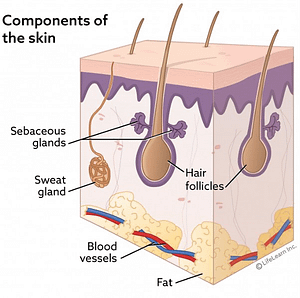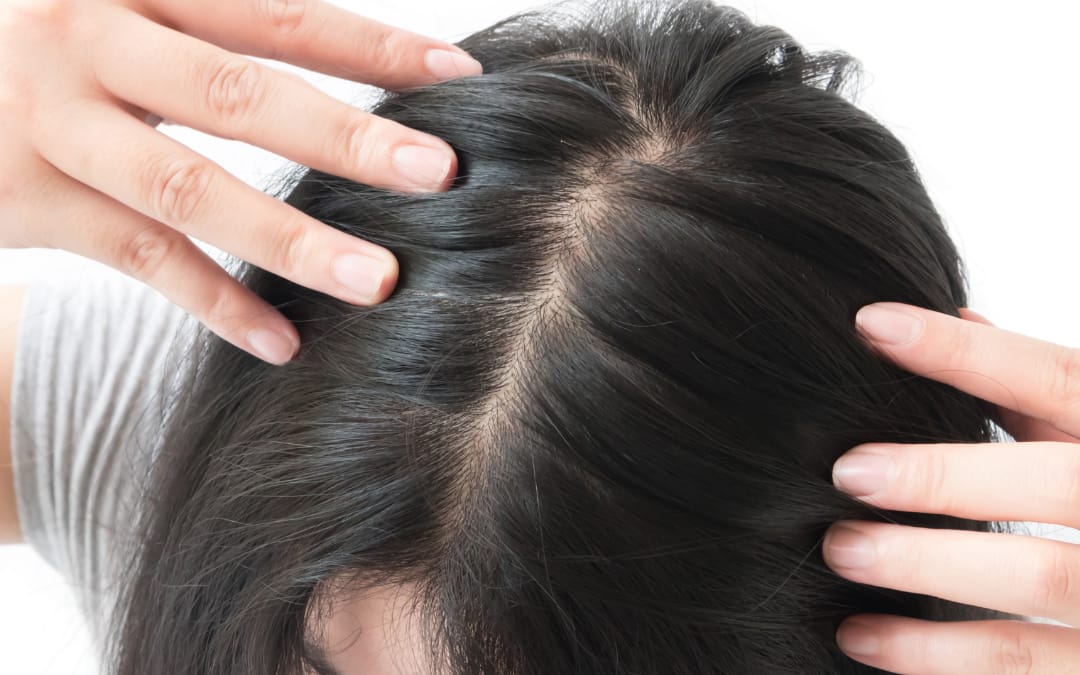How to Manage Greasy Hair
So many people are asking how to manage their greasy hair, here is a guide to help you to get the best out of your hair and scalp.
Why does hair become oily or greasy?
We have the largest concentration of sebaceous glands on the scalp. They produce a sticky, waxy like substance called sebum. Sebum is a natural hair moisturiser, and also helps to protect the skin of the scalp. These glands can sometimes be overactive, producing too much sebum, or underactive, producing too little sebum. Over production makes the hair greasy, with underproduction making the hair dry.
If there is any hair loss or hair thinning, the sebum can also overpower the hair causing a build-up of oil.

How can we manage our greasy hair?
Managing greasy hair is about frequency of washing, using hair care products with the right active ingredients and having a balanced diet. My top tips are:
Hair Care Products – Shampoos and Conditioners
Use products that are formulated for greasy hair. Ingredients such as Peppermint, Rosemary and Tea Tree are great at clarifying the hair and removing oil and product build up. Aloe Vera removes extra oil, fights product build up and soothes the scalp. The science and chemistry behind shampoo formulations suggests that natural ingredients are more beneficial to greasy hair, as harsh soaps and Sulfates can upset the natural balance of sebum production which can lead to an increase in sebum.
Conditioners should only be used on the mid lengths to ends of the hair. If your hair is greasy, adding conditioner to the root area will only add to the problem.
Don’t forget your scalp! Greasy hair can cause conditions such as Dandruff and Seborrhoeic Dermatitis. Active ingredients such as salicylic acid and Piroctone Olamine, both can help to keep the scalp balanced and reduce oily flakes forming.
A few product suggestions to suit all budgets are:

Frequency of hair washing:
Ideally, we should wash our hair daily or every other day to keep it clean and the scalp balanced. When the hair is greasy, daily washing can be a life saver.
Shampoo your hair properly!
To properly shampoo your hair, follow these simple steps:
- Gently work a small amount of shampoo into the hair roots and scalp. Use your fingertips and not your nails to gently work it through.
- Concentrate on the scalp where the oil is, rather than the ends of your hair. Let the shampoo flow along the hair shaft and naturally clean it as the lather is washed away. Make sure that you really do rinse properly. Leaving products behind can coat the hair which can lead to itching and dullness.
- Only repeat shampoo if you really need to. If you use lots of styling products, or work in an environment where there are lots of pollutants then the wash and repeat approach can work. But normally one proper shampoo should be enough.
- Only condition the mid lengths to ends of your hair, and work with the natural fall of the hair. Work from the mid lengths to the ends in a downward motion.
- Make sure that you clean your combs and brushes. These can easily become clogged with styling products, oil and dirt as well as hairs. Keeping your brushes and combs clean stops contamination spreading into the hair.
- Avoid products that have silicone. These products usually offer shine but can quickly build up on the hair making it look and feel oily and dirty.
- If you love dry shampoo to stretch your hair washing from daily to every other day, make sure that you wash it out properly. This is a good example of where shampooing twice can be really beneficial. Dry shampoo if not properly removed can irritate the scalp and really dehydrate the hair, so do use it sparingly.
Eat Well – Foods that help to manage greasy hair:
Vitamin B can help to regulate the amount of sebum production. Riboflavin Vitamin B2 and Pyridoxine vitamin B6 are particularly effective. Foods rich in vitamin B are fish, lean meat, poultry, beans and leafy green vegetables.
Top tips for Managing Greasy Hair:
- Wash your hair daily
- Look for active ingredients in shampoos such as Tea Tree, Peppermint, Rosemary, Aloe Vera, Salicylic Acid and Piroctone Olamine.
- Never condition the roots of the hair.
- If you use dry shampoo, then make sure you wash it out thoroughly.
- Avoid products that contain silicone, usually they claim to add shine.
- Eat a balanced diet that includes fish, meat and leafy green vegetables.
As always, if you have any general concerns then please e-mail me at eva.proudman@ukhairconsultants.com and I will be very happy to help and support you as much as possible. Or get in touch here!

